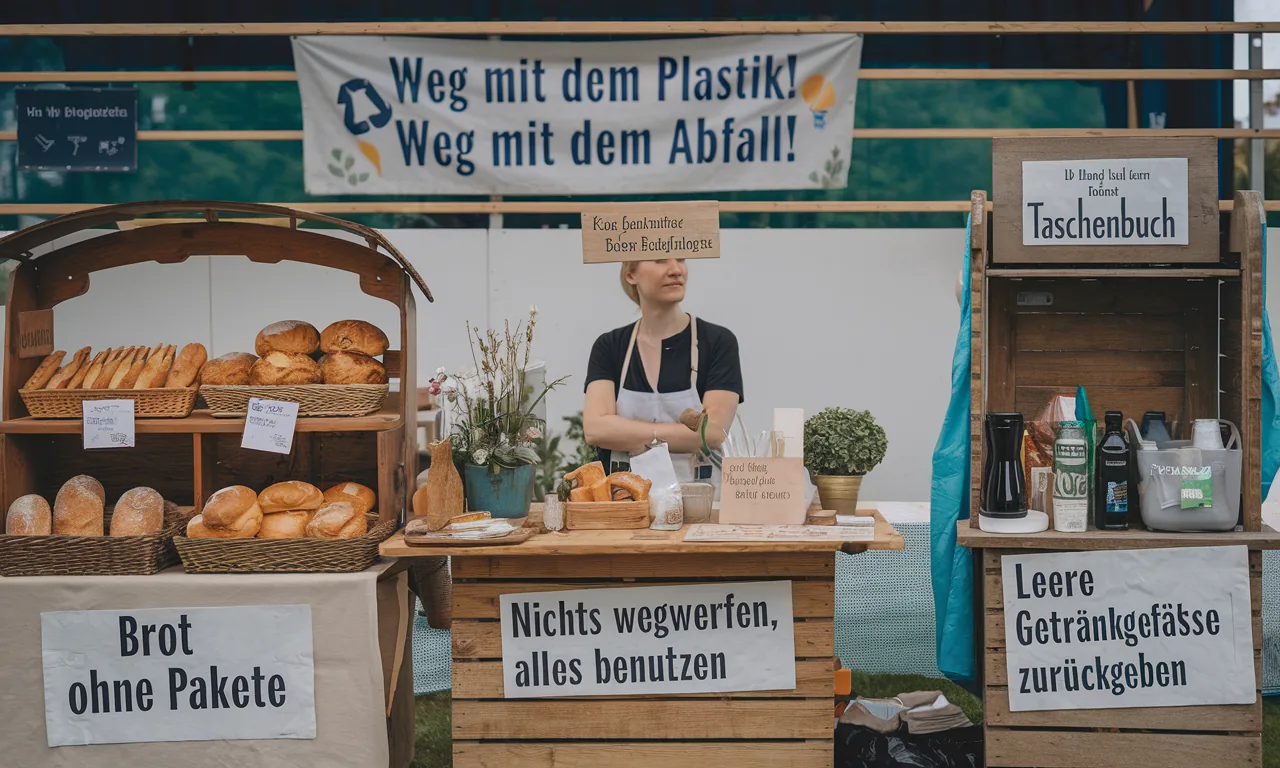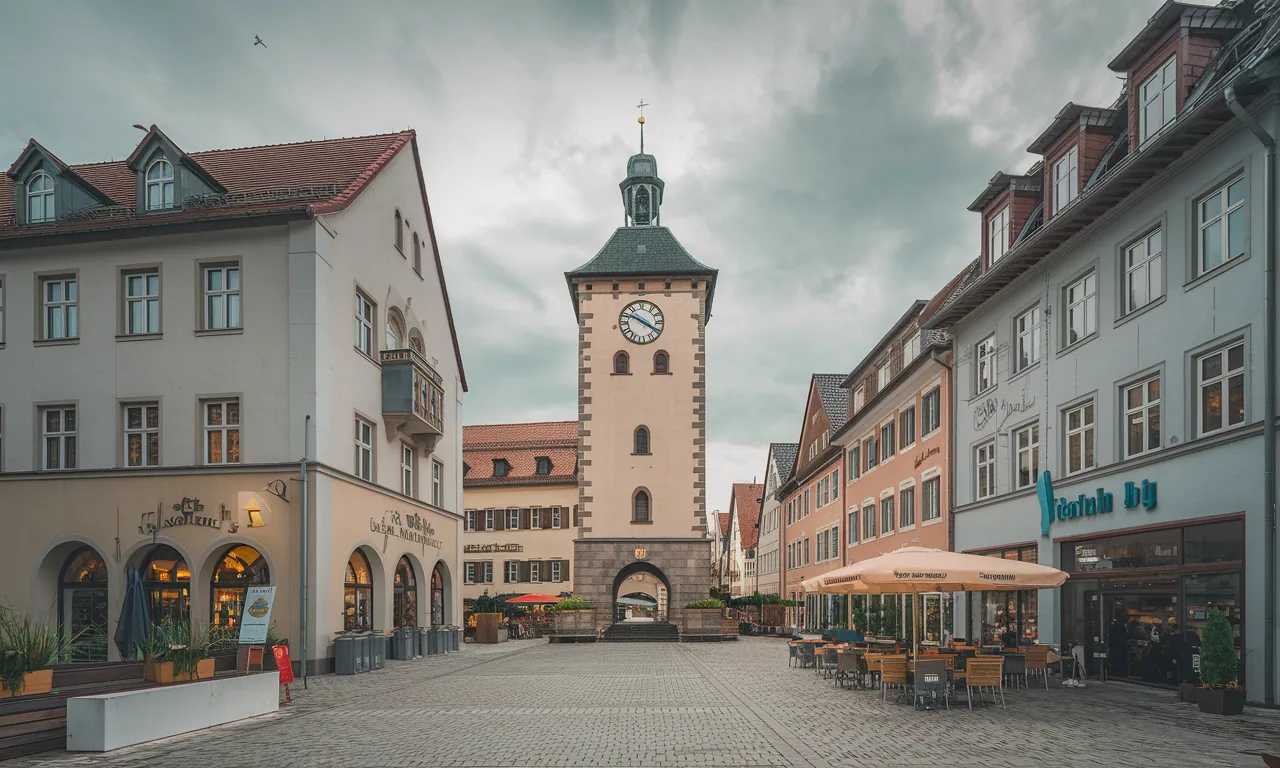Zero Waste in Traunstein: Waste Prevention at Green Events
Zero Waste & Green Events 2026: How Traunstein Celebrates Sustainably
From reusable systems to refill and cleanups: How Traunstein organizes low-waste and safe events in 2026 through clear rules, local collaboration, and education for sustainable development.
Outlook 2026: From the Shore to City Life – Cleanups and Festivals with Impact
Can a festival in Traunstein not only protect the environment but visibly improve it on site? In 2026, waste prevention, community spirit, and clever organization are coming together even more closely. Planned actions – from cleanups along the shore to low-waste city and club festivals – combine enjoyment, safety, and climate protection.
The focus is on clean shores, safe open spaces, and clear procedures: cigarette butts belong in collection containers, glass is replaced or safely managed, and the municipality supports logistics and removal. This creates a community of responsibility – visible and effective.
Why Waste Prevention Shapes Traunstein's Festivals in 2026
The guiding principle for green events is: less is more. Waste prevention begins in planning – with the zero-waste principles, the 5Rs: Refuse, Reduce, Reuse, Recycle, and Rot (compost). For Traunstein in 2026, this means: keeping resources in the cycle, consistently avoiding single-use, and strengthening local loops.
This is practiced organization with benefits: those who reduce packaging in advance save costs and logistics effort. Guest flow, catering, and waste points can be better managed, the area stays cleaner – and the mood improves. Every avoided single-use cup is also a small climate contribution, as raw materials, energy, and transport emissions are avoided from the start.
Low-Waste Celebrations 2026: Reusable, Refill, Bokashi
How does a festival become concretely low-waste? The key lies in consistent reusable solutions, refill offers, and simple incentives:
- Bring-Your-Own (BYO): Guests bring their own cups, bottles, or boxes. Clear notes in invitations and tickets set the tone – friendly, binding, effective.
- Rental dishes and mobile washing technology: A dishwashing mobile and robust reusable sets keep operations running smoothly. Deposit systems prevent losses and shorten routes.
- Water refill stations: Drinking water instead of single-use bottles. Good signage prevents queues and makes the sustainability claim visible.
- Clear collection and separation systems: Color codes, easily accessible collection islands, short distances. This keeps the area clean and makes recycling easier.
Responsible Use of Organic Waste: Rot with Bokashi
For kitchen and garden waste – where organizationally feasible – fermenting with Bokashi is suitable. Leftovers are collected airtight, later matured, and can (in suitable contexts and in coordination with municipal green maintenance) be used for building humus in beds. This closes local cycles, nourishes soils, and strengthens vegetation – a quiet but sustainable contribution beyond the event day.
At the same time, it pays to plan food smarter: smaller portions, flexible reproduction, donation options for surpluses. Result: less food waste, lower costs – and again a measurable climate contribution.
Cleanup Season 2026: Litter Pickers Against Cigarette Butts
Civic cleanup actions are planned for 2026 in shore and recreational areas. Gloves, litter pickers, and clearly marked collection points ensure safety and speed. Special attention is paid to cigarette butts, glass, and metal – waste with environmental and injury risks.
Why are cigarette butts particularly problematic? Cigarette filters contain pollutants that can enter soil and water. For organizers, this means: defined smoking zones with butt containers, regular patrols, trained staff, and discreet, well-placed signage.
Such visible measures increase willingness to participate – whether through BYO, correct separation, or joining the next cleanup date in the season.
Sports Events 2026: Avoiding Glass Shards, Focusing on Microplastics
Match days and club festivals can also be organized with low waste. The principles remain: reusable, clear separation, BYO, and good logistics. For sports areas, special aspects come into play: microplastics from artificial turf, littering in stands, glass shards at the field edge.
- Managing risk zones: Smoke-free areas on grass and tracks; butt containers at entrances instead of in seating rows. This reduces cigarette butts lying around.
- Avoiding confetti and glitter: Instead, reusable decorations – keeping the area free of microplastics.
- Using barriers: For artificial turf, mats/capture solutions that keep granulate near the field; regular sweeping of entrances.
- Glass-free zones: Deposit cups instead of glass. Where glass is unavoidable, controls and collection points ensure safety.
Note: For microplastics in certain applications, EU restrictions apply for intentionally added microplastic particles with transition periods. Responsible parties should keep an eye on further developments and local regulations in 2026.
Education, ESD, and the Climate Contribution 2026
Green events are places of learning. Workshops, short stage formats, and info points turn measures into a movement. The reference to Education for Sustainable Development (ESD) strengthens skills, promotes participation, and anchors routines – from waste prevention to correct disposal of cigarette butts.
Less single-use means less energy required for production and transport – and less waste disposal. If local providers are involved, distances decrease, and regional value creation increases. Resilience also benefits: in 2026, events can integrate donation boxes or info corners for flood relief – a topic of growing relevance.
Checklist 2026: Green Events in Traunstein
This compact list bundles proven measures for schools, clubs, city festivals, or concerts – practical and locally adaptable.
- Planning (5R): Refuse, Reduce, Reuse, Recycle, Compost. Goal: low-waste from the start.
- Reusable & BYO: Rental dishes, deposit cups, mobile washing technology; invite guests to bring their own cups/boxes.
- Water & Catering: Refill stations, local providers, flexible portions; donation options for surpluses.
- Separation & Cleanliness: Collection islands with color codes, clear signage, short emptying intervals; use of gloves and litter pickers for teams.
- Safety zones: Low-glass areas, butt containers, regular patrols; focus on glass shards and cigarette butts.
- Smart organic waste: Where possible, Bokashi for kitchen scraps and later humus building – in coordination with municipal green maintenance.
- Communication: Advance information, concise on-site notes, stage moderation; inclusion of ESD elements.
- Team & Partners: Clearly assign responsibilities, helper briefing; cooperation with the municipality (e.g., logistics, removal), local groups for cleanups.
- Social added value: Plan donation campaigns or info corners – for example, for flood relief.
- Follow-up: Record data (waste amounts, reusable quota), gather feedback, note improvements for next time. Visible climate contribution through key figures.
Planned Formats and Timeframes 2026
- Spring–Summer 2026: Shore and park cleanups, pilot refill actions at club and school festivals.
- Summer 2026: City and street festivals with reusable deposit systems, low-glass zones, and BYO communication.
- Autumn 2026: Sports events with microplastic prevention, collection islands at entrances, data collection on waste amounts.
- Year-round 2026: ESD workshops, training for helper teams, ongoing optimization of separation systems.
Local Contact Points and Practical Notes (Traunstein)
- Waste consulting of the city of Traunstein: Contact via the city's citizen service portal; current regulations and contacts are available on the official website. www.traunstein.de
- Recycling centers and disposal: Check opening hours and acceptance conditions in advance; clarify capacities and removal for event waste early.
- Rental dishes/dishwashing mobile: Request regional rental providers in good time; coordinate requirements (electricity/water) and washing capacities with the site.
- Cleanup groups: Clubs, schools, and initiatives often coordinate seasonally; dates are usually announced via municipal channels and social media.
Tip: Clarify responsibilities early (permits, removal, cleaning) and involve municipal contacts at an early stage.
Legal and Technical Basics (Selection)
- Reusable offer obligation for gastronomy/take-away: Part of the Packaging Act (VerpackG); relevant for temporary catering offers at events.
- Single-use plastic requirements: EU directive on single-use plastics (including bans on certain products, extended producer responsibility).
- Cigarette filters: Pollutant input into the environment – separate collection is essential.
- Microplastics: EU restriction for intentionally added microplastic particles with transition periods; artificial turf granulate is a focus of regulation.
- ESD: Education for sustainable development as a framework for learning opportunities at events.
Conclusion: Traunstein Sets Standards in 2026
With consistent waste prevention, lived togetherness, and a clear focus on safety and education, Traunstein shows in 2026 how sustainable events succeed. Whether city festival, school festival, or match day: with reusable, refill, good separation, and local creativity, celebrating becomes a real climate contribution – and strengthens the quality of life in the region.




